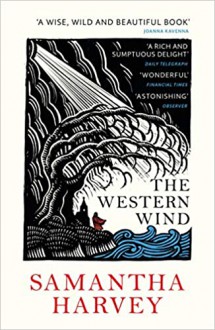
In my thirteen Oakham winters I'd never known such rain, nor seen this place so churned and soaked and listless in its mood and colour. I put my hand out and a dewy vapour settled on the back of it. My own chest and lungs had begun to labour from taking in too much damp and windless fug. For years on end nothing happened in Oakham out of the ordinary cycle of birth, strength, illness, death - there were no particular comings or goings, not things to surprise us. Then in September, Newman went on a pilgrimage to Rome. In November, we finished the bridge. In December, Newman came back from Rome. In January, Sarah Spenser went on a pilgrimage to see a rotten tooth. At the end of January she came back, feverish, and while away I'd been feverish, too. In early February, the bridge fell down. A week later Newman drowned. What curse was this?
Now here we were, besieged by a rural dean who, I'd come slowly to realise, was too intent on saving us wholly to care for the fate of any of us singly.
As much as I have issues with the book, there are some fine passages in this. It's just that this is not historical fiction. I've come to the conclusion that this seems to be contemporary fiction dressed up as a historical mystery (there's even a weird and completely anachronistic reference to Brexit in this). I'm strangely ok with that.
It's still no excuse for all the purple prose, tho.

 Log in with Facebook
Log in with Facebook 












